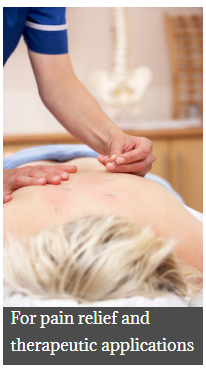Acupuncture
What is Acupuncture?
Acupuncture is the procedure of inserting and manipulating filiform needles into various points on the body to relieve pain or for therapeutic purposes. The word acupuncture comes from the Latin acus, “needle”, and pungere, “to prick”. According to traditional Chinese medicine, acupuncture points are situated on meridians along which qi (a “life energy”) flows.
Historical uses of acupuncture
Acupuncture’s origins in China are uncertain. In China, the practice of acupuncture can perhaps be traced as far back as the Stone Age, with the Bian shi, or sharpened stones. Despite improvements in metallurgy over centuries, it was not until the 2nd century BCE during the Han Dynasty that stone and bone needles were replaced with metal. The earliest Chinese medical text to describe acupuncture is the Huangdi Neijing, the legendary Yellow Emperor’s Classic of Internal Medicine (History of Acupuncture) which was compiled around 305–204 B.C.

Acupuncture 101
Often, imbalances in the flow of blood and energy along with deficiencies in the cooling or heating system of our body can lead to disease. Acupuncture along with carefully selected Chinese herbal formulas can be used to correct these imbalances. In addition to symptom differentiation, a practitioner trained in this healing art uses their pulse and tongue diagnostic skills to formulate a diagnosis which then can be used to derive the appropriate treatment protocol.
A misconception about acupuncture is that it is a painful therapy but nothing could be further from the truth. Acupuncture needles are so fine that you may not even feel their insertion and often patients experience relaxed states while their body’s energies are being harmonized. A temporary dull numbing feeling may be experienced which is an indication that the acupuncture point has been activated and was needed.
What can be treated with Acupuncture?
Well, to cover this subject we would require many volumes of books. It is suffice to say that acupuncture can help conditions ranging from physical and functional ailments to emotional issues as Traditional Chinese Medicine regards all diseases as an imbalance in the Yin and Yang energies of the body. Acupuncture stimulates meridians which can be thought of as energy pathways connecting the superficial acupuncture points to internal organs. So, when there is a lowered function of internal organs (such as the liver, kidney, lung, or heart) we may use acupuncture to stimulate the functioning of these organs. Acupuncture is also a great method to supplement other ongoing therapies as it balances their actions. Therefore, it can either enhance the effect of other therapies or reduce their toxic effects.
